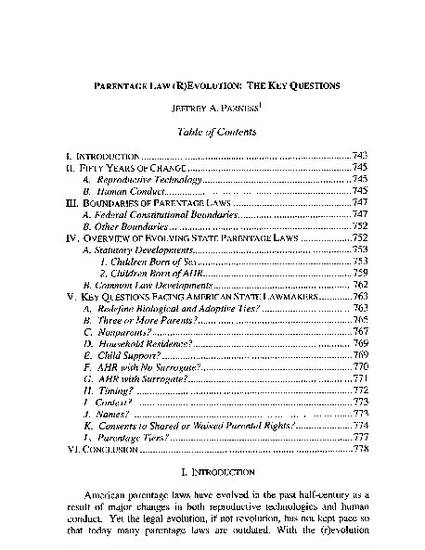
American state parentage laws have evolved significantly in the past half century in response to changes in both reproductive technologies and human conduct. Yet further evolution, if not a revolution, seems inevitable. In particular, American state laws increasingly recognize parenthood by consent for a nonbiological and nonadoptive parent-like figure in an intimate or familial relationship with a child’s biological or adoptive parent. Lawmakers, especially state legislators, will need to consider who may be granted standing as parents to seek court-ordered childcare, including former stepparents, former boyfriends and girlfriends, and present and former grandparents. As well, they must ponder whether standing should be granted to three or more possible parents; how consent to a new parent might be given outside of formal adoption by both a recognized parent and by an intended parent, including whether a formal declaration should be required, as via a voluntary acknowledgment or guardianship; and, whether household residence or a particular length of actual childcare activities should be demanded. Given the likely continuing changes in human conduct (as with more same sex marriages) and technologies (as with prebirth paternity testing), American parentage laws will undoubtedly continue to be further (r)evolutionized, presenting further challenges for American state lawmakers.